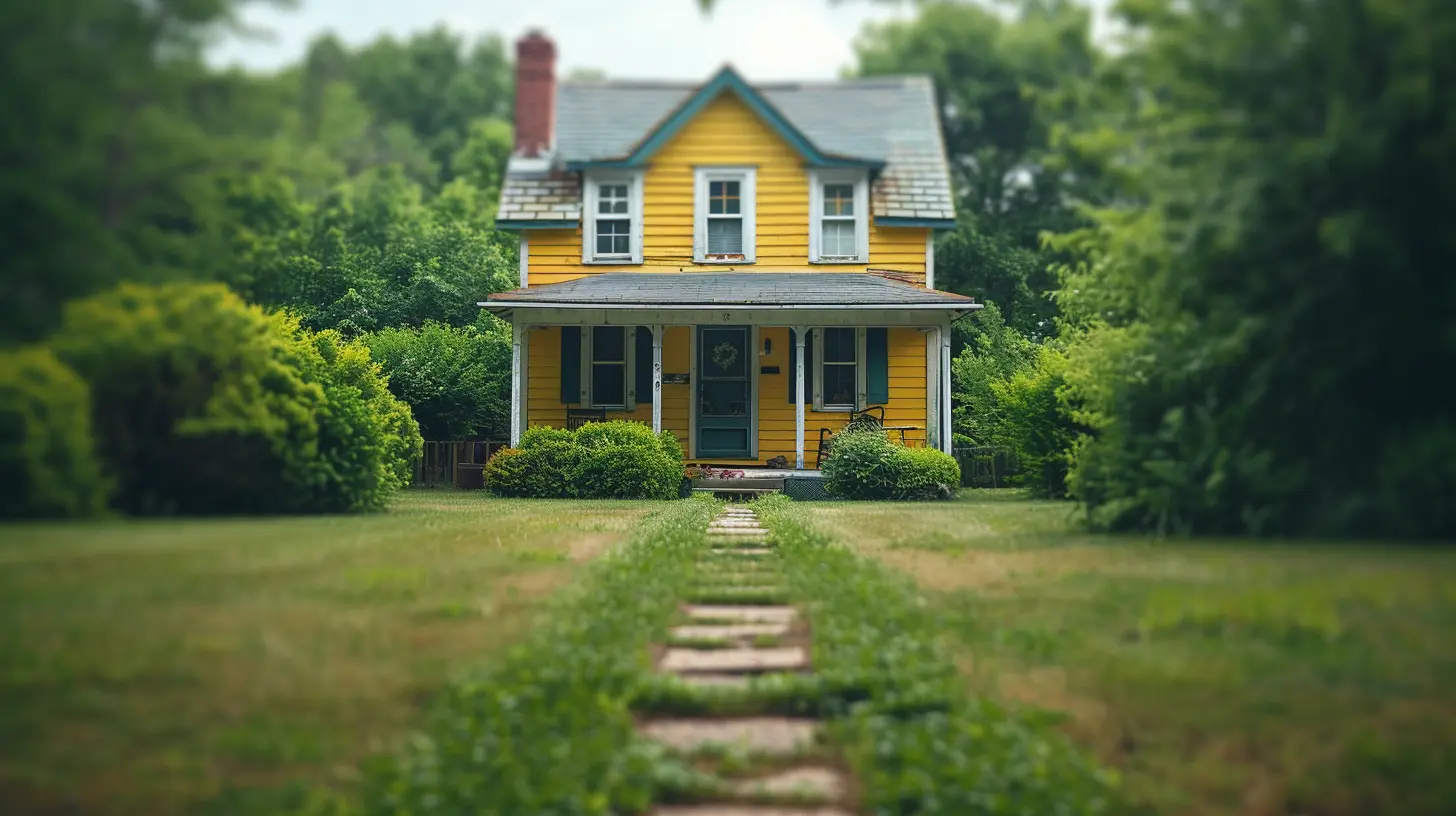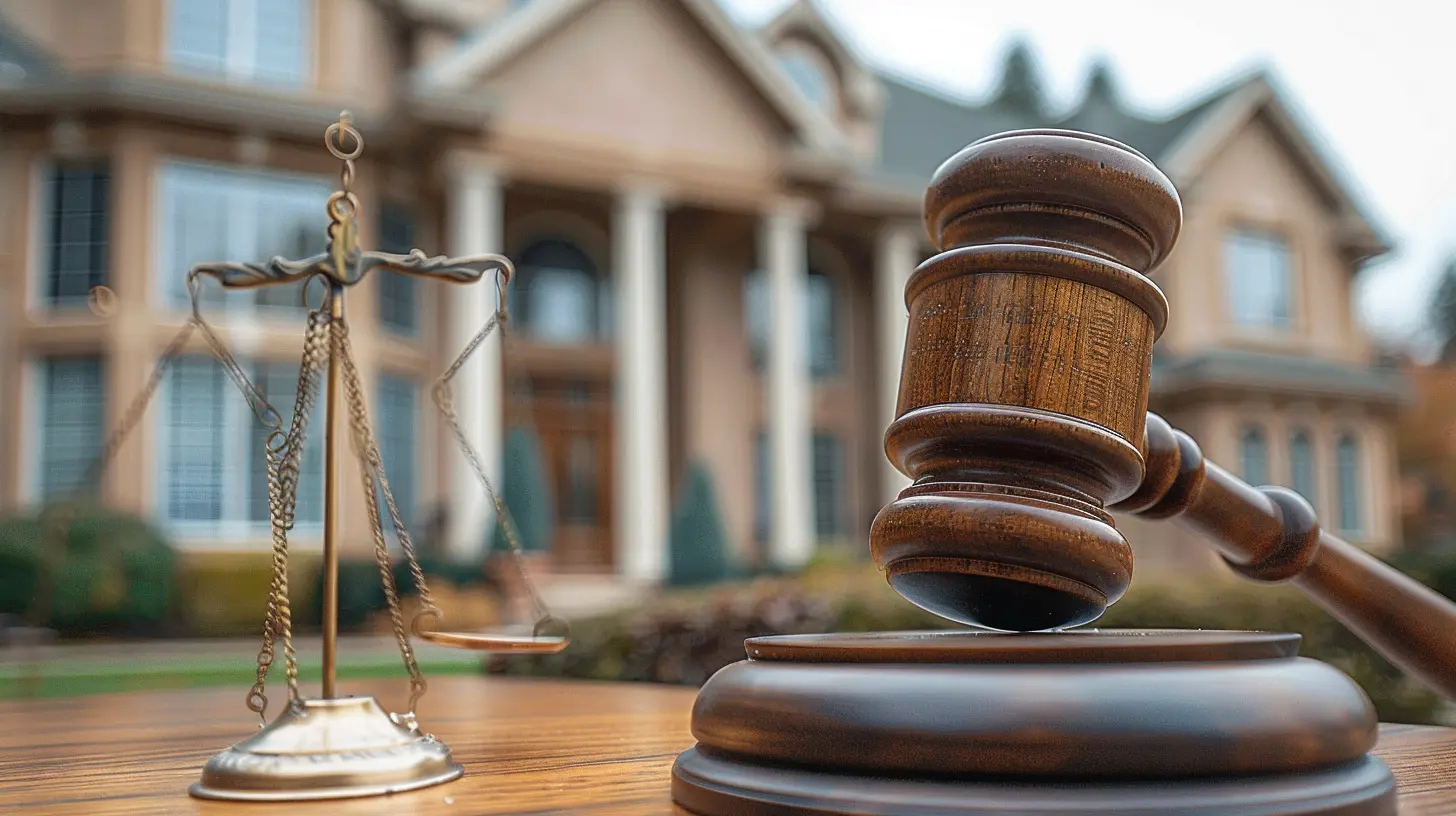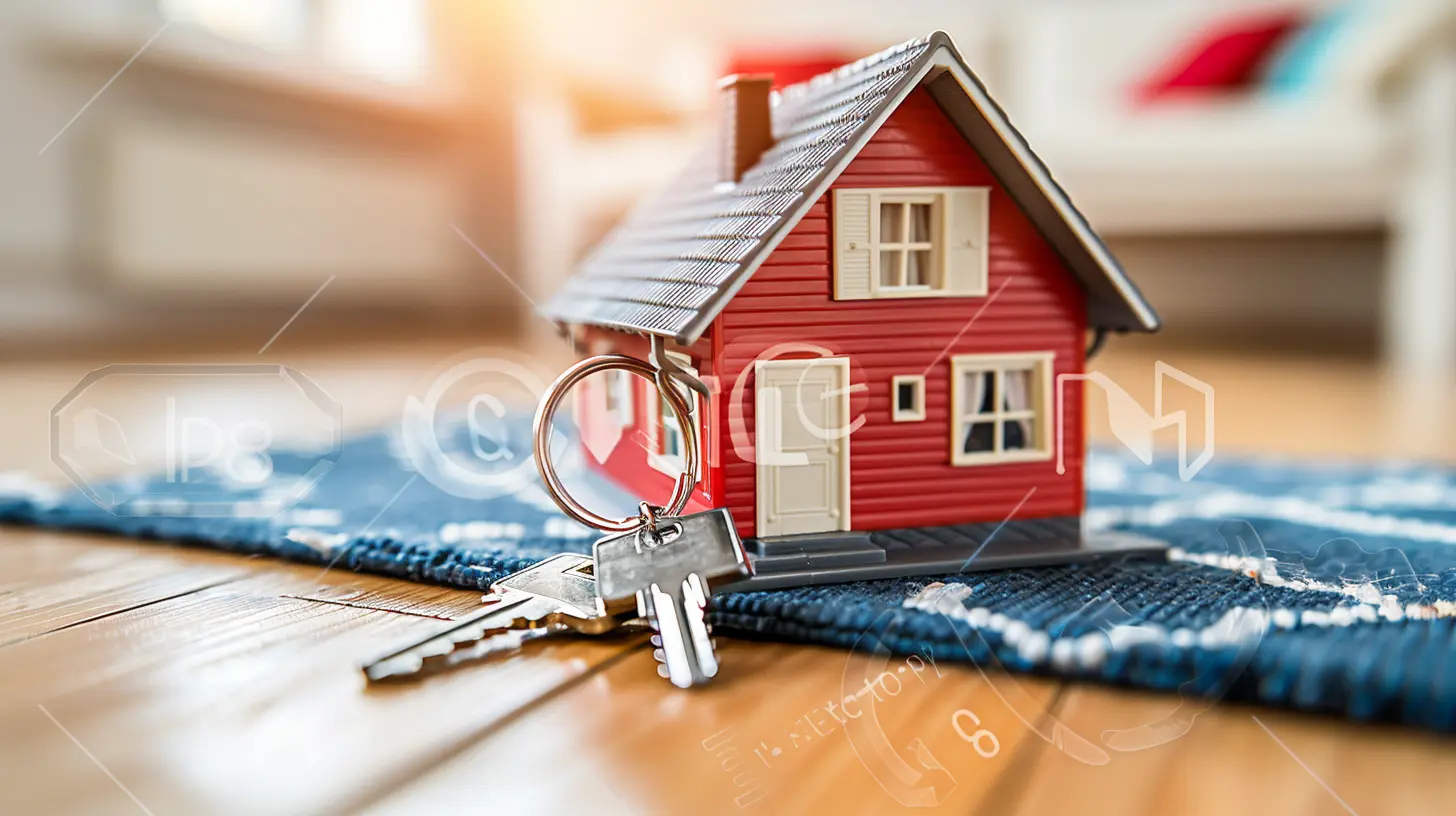Exploring Foreclosure Auctions: Is It Right for You?
1 April 2025
Purchasing a home is one of life's biggest milestones, but what happens when someone falls behind on payments? Unfortunately, homes can go into foreclosure, meaning the lender takes back the property and sells it to recover the unpaid debt. This process often leads to foreclosure auctions where buyers can snag properties at significant discounts. Sounds like the ultimate real-estate jackpot, right? Well, not so fast! While foreclosure auctions can be goldmines for savvy buyers, they're not for everyone. Let’s dive into the nitty-gritty of foreclosure auctions to help you decide if it’s the right move for you.
What Are Foreclosure Auctions, Exactly?
Imagine this: A homeowner has missed multiple mortgage payments and the lender has run out of patience. At this stage, the lender initiates foreclosure to recoup their losses. After the legal process plays out, the property often ends up on the auction block to be sold to the highest bidder.Foreclosure auctions are usually either handled by local governments, a trustee, or private auction companies. These auctions can take place in person—picture a fast-talking auctioneer on courthouse steps—or online, where you can bid from the comfort of your couch. Either way, it's a no-frills sales event where properties sell as-is, and buyers must be ready to pay up quickly.
Why Do People Buy Foreclosures?
If you’re thinking it’s all about the price, you’re not wrong. The biggest draw of foreclosure auctions is the chance to score a deal. Buying below market value can mean instant equity if the property appreciates, which is music to the ears of both investors and aspiring homeowners.But it’s not just about the numbers. For some, it’s the thrill of the hunt. It’s like real estate’s version of a treasure hunt—except the "treasures" are homes and the risks are...well, let’s just say they’re more complex than finding loose change under the couch. 
How Do Foreclosure Auctions Work?
Let me break this down for you step-by-step:1. Pre-Auction Phase
Before the auction, properties are listed as pre-foreclosures. You can typically find these through public notices, local newspapers, or online platforms. Use this time to research the property. Is it in a good neighborhood? What’s the current market value? Does the property have liens or unpaid taxes attached? (Pro tip: Always do your homework!)2. Register to Bid
Most foreclosure auctions require bidders to register before the event. This process often involves submitting proof of funds or a cashier's check to ensure you're serious about buying.3. The Auction Itself
When the day rolls around, be prepared for fast-paced action. In-person auctions can feel like being in the middle of an intense poker game, while online auctions often involve timers ticking down. You’ll be competing against other bidders, and sometimes professional investors who really know their stuff.4. Winning the Bid
If you’re the highest bidder, congratulations! But there’s a catch: this isn’t like purchasing something on Amazon. Foreclosure auction purchases are typically final. There are no refunds, no returns, and you buy the property as-is—warts and all.
The Pros of Buying at a Foreclosure Auction
Foreclosure auctions come with their fair share of perks. Here are a few:1. Discounted Prices
The most obvious advantage is the potential to buy a property at a heavily discounted price, often lower than its market value. This can provide incredible investment opportunities.2. Instant Equity
If you’re lucky, the discounted price means instant equity. That’s like buying a car and discovering it’s worth more than you paid the moment you drive it off the lot. Who doesn’t love instant value?3. Less Bureaucracy
Unlike traditional real estate transactions, foreclosure auctions cut through a lot of red tape. There’s no need for lengthy negotiations or back-and-forth drama with a seller.4. Investment Opportunities
For investors, foreclosure auctions are a prime spot to swoop in, renovate properties, and either flip them for profit or generate rental income.The Cons of Buying at a Foreclosure Auction
Now, for the not-so-rosy side of things. Here’s what could trip you up:1. Limited Insight
When buying at a foreclosure auction, you're often going in blind. There’s usually no chance to inspect the property beforehand, so you might be inheriting a money pit or a home with major structural issues.2. Risk of Liens
Some properties come with financial baggage—like outstanding liens, back taxes, or HOA dues—that you’ll inherit as the new owner. And trust me, debt is not the accessory you want when buying a new home.3. All-Cash Transactions
Foreclosure auctions often require immediate payment, typically in cash or via a cashier’s check. That means no bank loans, no mortgage companies, and no time to scrape together funds.4. Emotional Toll
Think buying a home the traditional way is stressful? Foreclosure auctions take it up a notch. The speed, competition, and uncertainty can be an emotional rollercoaster.Who Typically Buys at Foreclosure Auctions?
You might be wondering who’s best suited for this high-stakes game. Buying a foreclosure isn’t for the faint of heart. It’s a good option for seasoned investors or buyers with deep pockets and a willingness to take on risk.If you’re new to real estate or working with a tight budget, proceed with caution. It’s not like buying a latte where you can blame it on a bad barista if it doesn’t turn out right. A foreclosure auction is a significant financial commitment that you can’t easily undo.
Is a Foreclosure Auction Right for You?
So, how do you know if this is the right move? Start by asking yourself the following:- Do I have the financial resources to buy a property outright?
- Am I okay with the uncertainty of buying as-is?
- Do I have a good understanding of the real estate market?
- Am I an investor looking to make a profit or a buyer looking for a place to live?
If you answered yes to most of these questions, then a foreclosure auction could be a viable route. If not, you might want to stick to more traditional real estate options.
Tips for Buying at a Foreclosure Auction
If you decide to test the waters, here are a few tips to minimize your risks and maximize your chances of success:1. Do Your Homework
Research is your best friend. Look up property records to check for liens, inspect the neighborhood, and estimate the property's market value.
2. Set a Budget (and Stick to It)
It’s easy to get caught up in bidding wars. Set a firm limit, and don’t let emotions drive up your price.
3. Bring a Professional
If you’re new to the game, consider bringing in a real estate agent or attorney who specializes in foreclosures to guide you through the process.
4. Have Funds Ready
Since these are often all-cash transactions, make sure your financing is in order before the auction. No “buy now, pay later” options here!
Final Thoughts
Foreclosure auctions can be an incredible opportunity if you're willing to do your research, accept the risks, and act quickly. But let’s be real—this isn’t for everyone. If the thought of buying a home without seeing it first makes your palms sweat, you might want to steer clear.On the other hand, for those willing to dive headfirst into this fast-paced part of the real estate market, the rewards can be well worth the effort. Just remember, knowledge is power. The more you know before you bid, the better your odds of making a smart investment.
all images in this post were generated using AI tools
Category:
Real Estate AuctionsAuthor:

Lydia Hodge
Discussion
rate this article
7 comments
Dior Ellison
Foreclosure auctions can be a great opportunity for savvy buyers, but they come with risks. Do your homework and assess your risk tolerance before diving in.
April 9, 2025 at 10:57 AM

Lydia Hodge
Absolutely! Understanding both the potential rewards and risks is crucial for anyone considering foreclosure auctions. Do thorough research to make informed decisions.
Mallory McGuffey
This article offers valuable insights into foreclosure auctions, highlighting potential benefits and risks for buyers. It's essential to thoroughly research and understand the process before diving in. For those willing to navigate the complexities, it could be a path to finding great deals in real estate. Great read!
April 9, 2025 at 3:11 AM

Lydia Hodge
Thank you for your thoughtful comment! I'm glad you found the insights valuable. Understanding the process is key to making informed decisions in foreclosure auctions. Happy reading!
Olivia McGovern
Thinking about diving into foreclosure auctions? 🏠 It’s like treasure hunting, but with property! Just remember: every gem has its quirks. Happy bidding! 💰🔑
April 6, 2025 at 9:00 PM

Lydia Hodge
Thanks for the insight! Foreclosure auctions can be exciting, but it's crucial to do your research and understand the potential challenges. Happy bidding indeed!
Eleanor McLaughlin
Foreclosure auctions: where your dream home might just be someone else's nightmare! Bring popcorn and a good luck charm!" 🏠🍿✨
April 5, 2025 at 2:49 AM

Lydia Hodge
Exactly! Foreclosure auctions can be a mix of opportunity and risk—strategy and a bit of luck are essential. 🍀🏡
Zealot Dillon
Foreclosure auctions present unique opportunities and risks. It's essential to thoroughly research the properties and market conditions before committing, ensuring alignment with your investment goals and financial situation.
April 4, 2025 at 7:49 PM

Lydia Hodge
Absolutely! Thorough research is crucial in navigating foreclosure auctions, balancing both opportunities and risks effectively.
Vesperos McNeil
Foreclosure auctions present unique opportunities but also considerable risks. It's essential to conduct thorough research and understand the market dynamics before diving in. Consider your investment goals carefully.
April 3, 2025 at 3:28 AM

Lydia Hodge
Thank you for your insight! Thorough research and a clear understanding of your goals are indeed vital for navigating the complexities of foreclosure auctions effectively.
Caelestis Estes
Foreclosure auctions: where dreams can be sold at a discount! Just remember, buying a home at a bargain doesn’t mean you’re getting a steal—check for hidden ‘ghost’ fees!
April 1, 2025 at 11:35 AM

Lydia Hodge
Great point! It’s crucial to factor in all potential costs when considering foreclosure auctions. Happy bidding!
MORE POSTS

Home Staging Beyond the Living Room: Bathrooms, Bedrooms, and More

How Mixed-Income Housing is Shaping Modern Urban Areas

Understanding Housing Market Trends and How They Affect Downsizing

The Importance of Community Engagement in Urban Developments

What to Look for in a Real Estate App When House Hunting

Exploring the Rise of Luxury Co-living Spaces